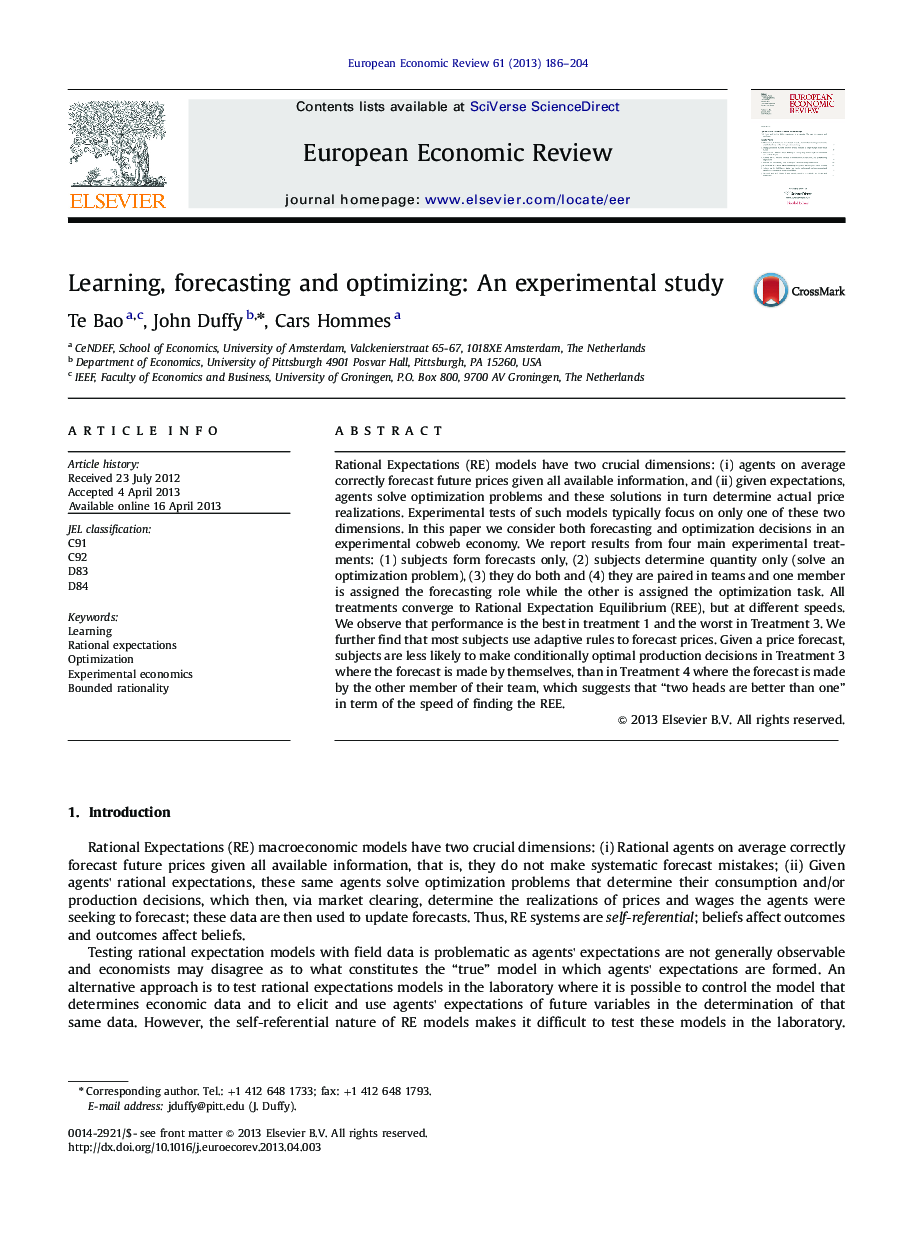| کد مقاله | کد نشریه | سال انتشار | مقاله انگلیسی | نسخه تمام متن |
|---|---|---|---|---|
| 5066963 | 1476807 | 2013 | 19 صفحه PDF | دانلود رایگان |
- We experimentally study whether and how agents learn a rational expectations equilibrium.
- The learning problem is decomposed into forecasting or optimizing tasks or both.
- We also consider the performance of individuals versus teams of individuals.
- Learning is fastest in the forecasting task and slowest in the forecasting and optimizing task.
- Teams outperform individuals in the combined forecasting and optimizing task.
Rational Expectations (RE) models have two crucial dimensions: (i) agents on average correctly forecast future prices given all available information, and (ii) given expectations, agents solve optimization problems and these solutions in turn determine actual price realizations. Experimental tests of such models typically focus on only one of these two dimensions. In this paper we consider both forecasting and optimization decisions in an experimental cobweb economy. We report results from four main experimental treatments: (1) subjects form forecasts only, (2) subjects determine quantity only (solve an optimization problem), (3) they do both and (4) they are paired in teams and one member is assigned the forecasting role while the other is assigned the optimization task. All treatments converge to Rational Expectation Equilibrium (REE), but at different speeds. We observe that performance is the best in treatment 1 and the worst in Treatment 3. We further find that most subjects use adaptive rules to forecast prices. Given a price forecast, subjects are less likely to make conditionally optimal production decisions in Treatment 3 where the forecast is made by themselves, than in Treatment 4 where the forecast is made by the other member of their team, which suggests that “two heads are better than one” in term of the speed of finding the REE.
Journal: European Economic Review - Volume 61, July 2013, Pages 186-204
